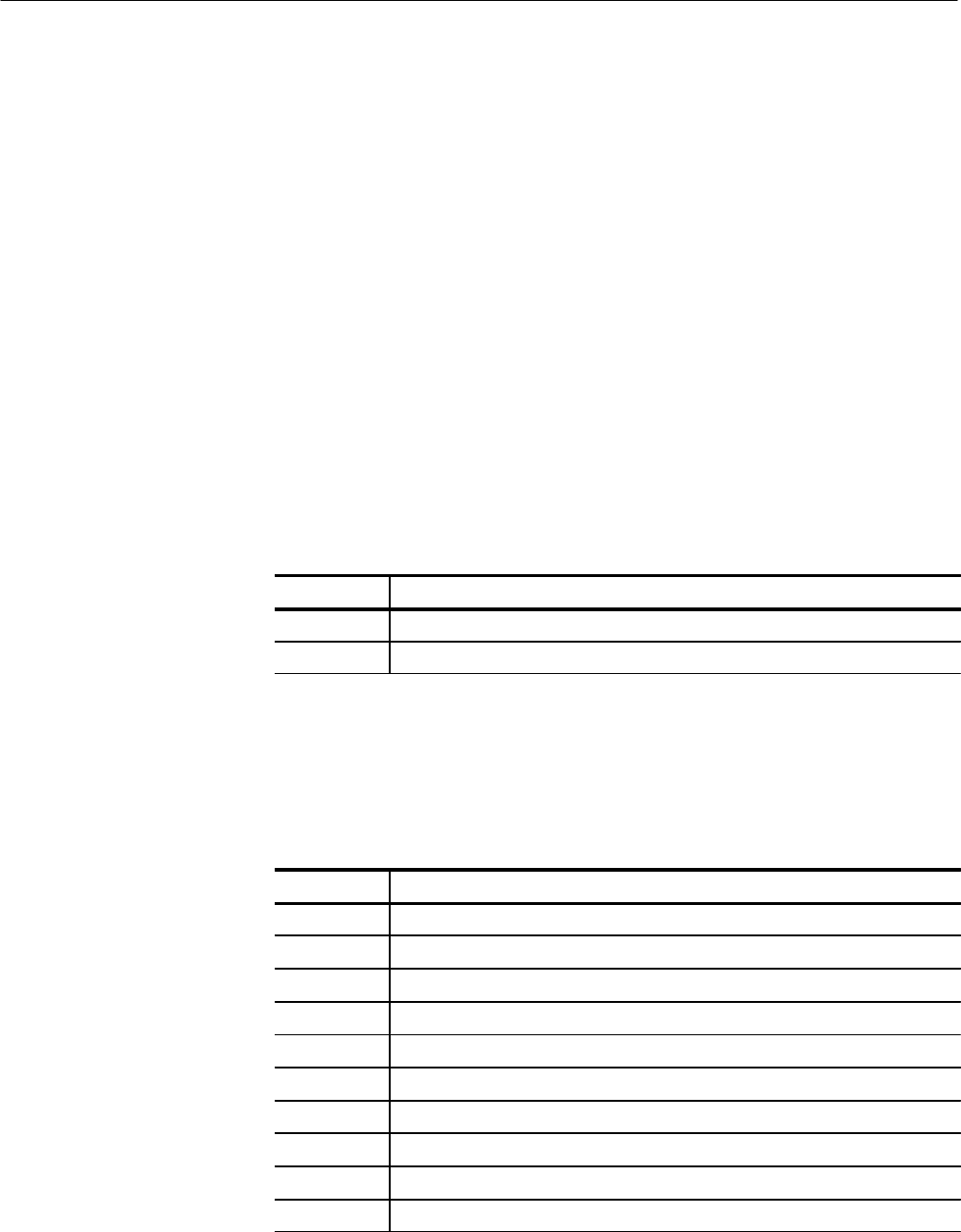
Status and Events
3–12
TDS Family Oscilloscope Programmer Manual
Messages
Tables 3–3 through 3–9 list all the programming interface messages the
digitizing oscilloscope generates in response to commands and queries.
For most messages, a secondary message from the digitizing oscilloscope gives
more detail about the cause of the error or the meaning of the message. This
message is part of the message string, and is separated from the main message by
a semicolon.
Each message is the result of an event. Each type of event sets a specific bit in
the SESR and is controlled by the equivalent bit in the DESER. Thus, each
message is associated with a specific SESR bit. In the message tables that follow,
the associated SESR bit is specified in the table title, with exceptions noted with
the error message text.
Table 3–3 shows the messages when the system has no events or status to report.
These have no associated SESR bit.
Table 3–3: No Event Messages
Code Message
0 No events to report – queue empty
1 No events to report – new events pending *ESR?
Table 3–4 shows the error messages generated by improper command syntax.
Check that the command is properly formed and that it follows the rules in
Command Syntax starting on page 2–1.
Table 3–4: Command Error Messages – CME Bit 5
Code Message
100 Command error
101 Invalid character
102 Syntax error
103 Invalid separator
104 Data type error
105 GET not allowed
106 Invalid program data separator
108 Parameter not allowed
109 Missing parameter
110 Command header error
